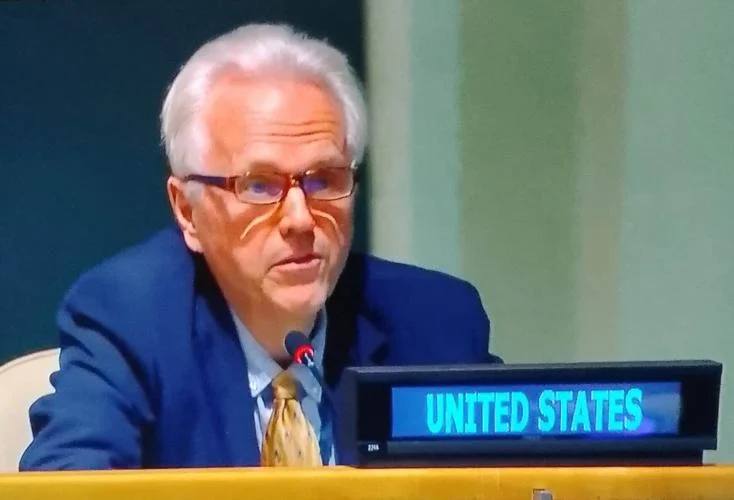The United States one of the world’s largest emitter of greenhouse gases, has disagreed with the Vanuatu-led resolution of seeking an Advisory Opinion from the International Court of Justice (ICJ) on the states’ obligation to addressing climate change.
U.S deputy representative to the United Nations Economic and Social Council (ECOSOC), Nicholas Hill, explained his country’s position on the resolution following its recent adoption by the United Nations General Assembly (UNGA).
Hill begun his statement by saying that addressing the climate crisis is of the highest priority for U.S, both domestically and internationally. He said the climate crisis is at the center of its foreign policy and diplomacy.
He mentioned the U.S is focused on mobilizing resources to support developing countries as they address the climate crisis, and is also on minimising the risks of sea level rise for small islands and low-lying states, and working to address its impacts through its policies and support.
“In this context, the United States has engaged in discussions on this resolution with a view to consider how best we can advance our collective efforts,” said the Deputy U.S representative to ECOSOC.
“We have considered this carefully, recognising the priority that Vanuatu and other Small Island Developing States have placed on seeking an advisory opinion from ICJ with the aim of advancing progress towards climate goals.
“However, we have serious concerns that this process could complicate our collective efforts and will not bring us closer to achieving these shared goals. We believe that launching a judicial process-especially given the broad scope of the questions-will likely accentuate disagreements and not be conducive to advancing ongoing diplomatic and negotiation process. In light of these concerns, the U.S disagrees that this initiative is the best approach for achieving our goals, and takes this opportunity to reaffirm our view that diplomatic efforts are the best means by which to address the climate crisis.
“While we recognise this process will go forward in light of the significant support for the resolution, we underscore our continuing belief that successfully tackling the climate crisis is best achieved through doubling down on the types of diplomatic efforts that we are engaged in, including multilateral engagement under the Paris Agreement and other fora, plurilateral initiatives, and bilateral efforts that advance solutions to the multifaceted challenges caused by the climate crisis.
“The U.S will welcome the opportunity to share our legal views and engage with states and the Court on the question posed.”
Another biggest greenhouse emitter in the world, China, welcomed the resolution however it has reservation regarding the draft text itself. The representative from China explained that this reservation is that the text operative paragraphs do not reflect the principles of equity, common but differentiated responsibility, and respective capabilities.
“China believes that the ICJ when discussing the issue of climate change should respect the status of the Convention as the main channel, safeguard the principles of the Framework Convention and Paris Agreement and assist with advancing their implementation, rather than interfering with the global climate governance process,” the representative stated. Both China and USA did not object, but allowed the resolution to be adopted. The resolution gained overwhelming support from the UN members and was considered a landmark.
